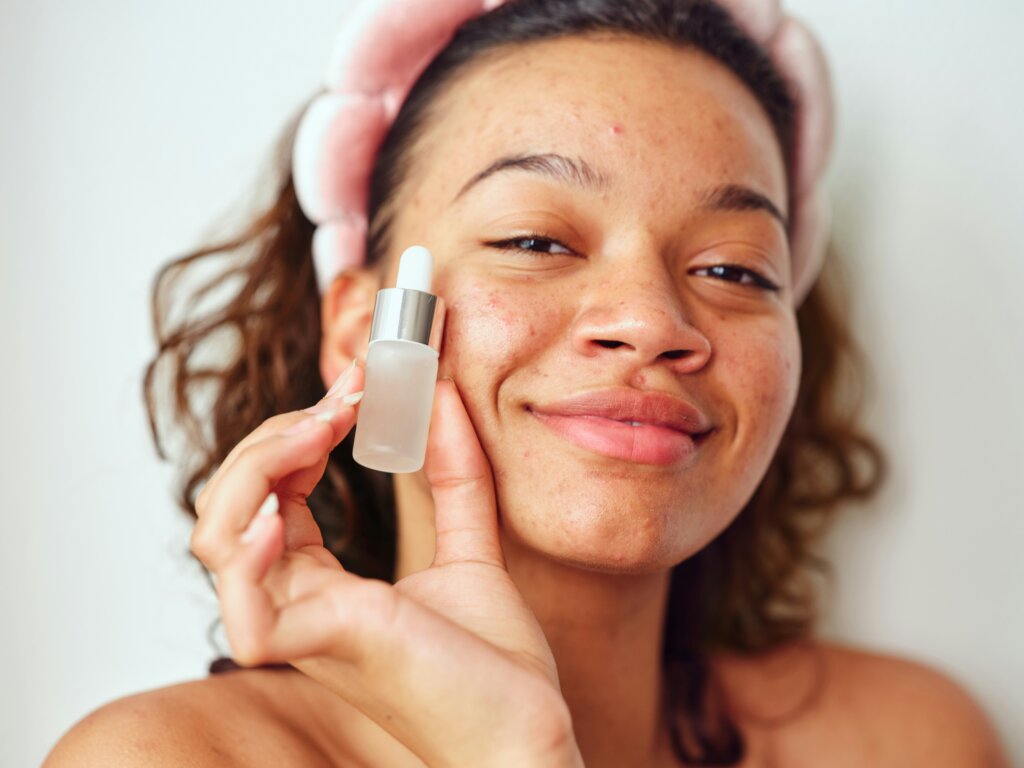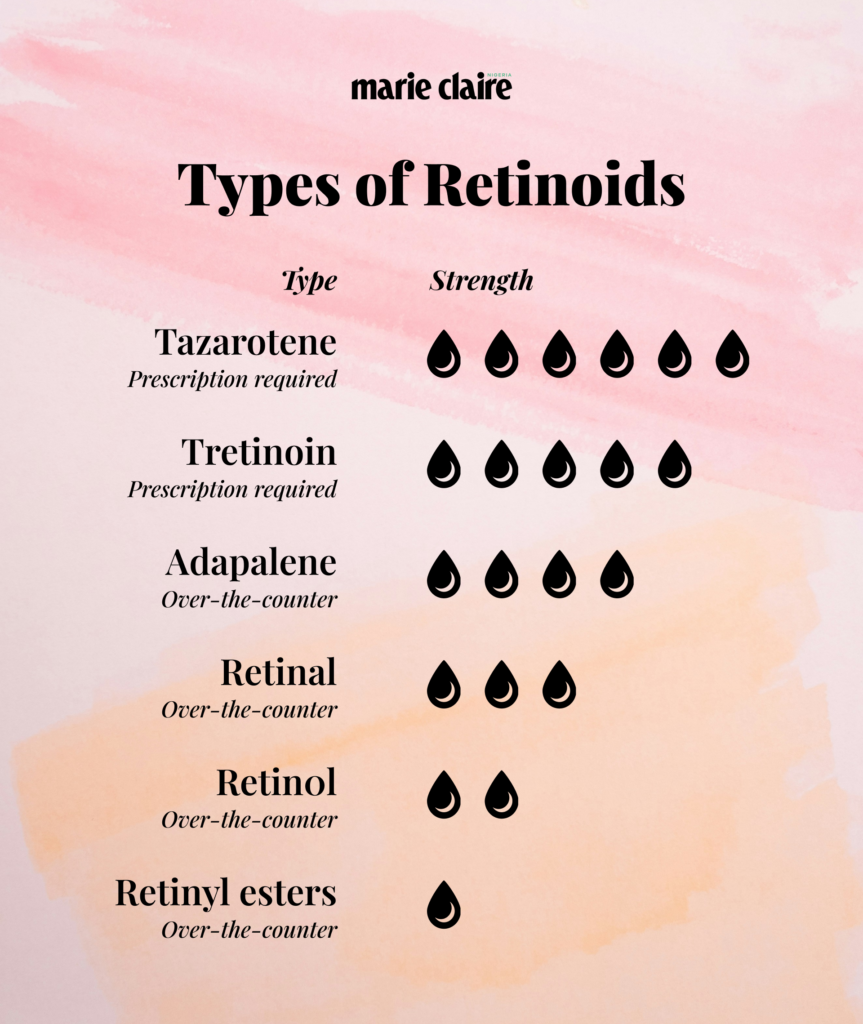Before applying retinoids to your face, know the benefits, drawbacks, and their inevitable, uncomfortable peeling phase.
If there’s one ingredient that has stood the test of time in skincare, it’s retinoids. Some swear by them for that youthful glow, while others fear the dreaded “retinol purge.” But what if I told you there are more benefits to retinoids than just fighting wrinkles?

Retinoids are vitamin A derivatives that accelerate skin cell turnover, boost collagen production, and address issues like acne and fine lines. However, the type you use makes all the difference. In this article, I’ll look at two retinoids in two popular forms: retinol, the over-the-counter favourite, and tretinoin, the prescription powerhouse.
Most people use retinoids for acne or its anti-ageing properties, often forgetting that they help with hyperpigmentation, skin texture, and even sun damage. Of course, not all retinoids are tretinoin or retinol. Other types, like adapalene and tazarotene, have their benefits. The pressing question is: are you using the right one for your skin?

Retinol is available over the counter (OTC), and is less potent, making it gentler on the skin, but meaning it takes longer to show results . In contrast, tretinoin—a prescription-strength retinoid is more potent and works faster but often comes with increased irritation. So, how do these differences impact your skin’s health and appearance?
Dr Rosalind Simpson, a dermatologist at the University of Nottingham, clarifies: “Retinol and stronger retinoids stimulate collagen production in the dermis, ultimately thickening this skin layer over months, which enhances skin’s plumpness and youthfulness.”

OTC retinol vs prescription tretinoin: Do you really need the hard stuff?
The truth is that most people don’t need tretinoin. For mild skin concerns, over-the-counter retinol is just enough to deliver gradual results with minimal irritation. Tretinoin, on the other hand, is a prescription-strength retinoid reserved for severe cases like deep acne or significant hyperpigmentation. Due to its potency, it requires medical supervision, and a carefully monitored skincare routine.
Dr Natalia Spierings, a consultant dermatologist, asserts this: “There is a crucial distinction between retinoids, which are derivatives of vitamin A, and the more potent retinoic acid that requires a prescription.”
Natural vs synthetic: does it even matter?
Retinoids — whether naturally derived or synthetic — function similarly by converting to retinoic acid in the skin. However, the key difference lies in their source, potency, and potential for irritation.
- Natural retinoids: Also called bio-retinoids, these come from plant-based sources like rosehip oil, bakuchiol, and carrot seed oil. While they have mild retinoid-like effects, they are significantly less potent than synthetic forms and may take longer to show results.
- Synthetic retinoids: These retinoids, such as retinol, and tretinoin, are lab-derived and specifically designed to target skin concerns more effectively. They are stronger but can cause irritation, dryness, and peeling, especially in the initial stages of use.
Additionally, Dr Marisa Garshick, a board-certified dermatologist, notes: “Retinol and retinoids are highlighted as powerful anti-ageing substances that boost collagen production and improve skin texture.”
What are the best ways to use retinoids on your face?
Whether you’re using retinol or tretinoin, follow these guidelines and thank me later!
- Start slow: Apply two to three times a week at night, then gradually increase frequency.
- Moisturise generously: To combat dryness and peeling.
- Wear sunscreen daily: Retinoids increase sun sensitivity.
- Avoid mixing with harsh actives: Steer clear of exfoliants and benzoyl peroxide during the initial phase.
- Be patient: Visible results take time – typically several weeks to months.
Retinol vs Tretinoin – which one wins?
Unless prescribed by a healthcare professional, retinol is sufficient for most individuals. It offers effective results with a lower risk of irritation. Tretinoin — while potent — is best reserved for more severe skin concerns and should be used under medical supervision.
In conclusion, before considering tretinoin, retinol, or any retinoids, assess your skin’s needs, and consult a dermatologist to determine the most appropriate treatment for your concerns.


